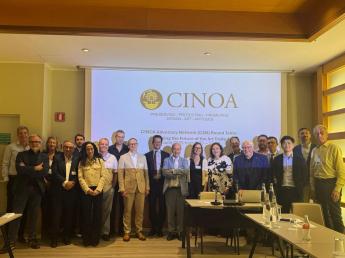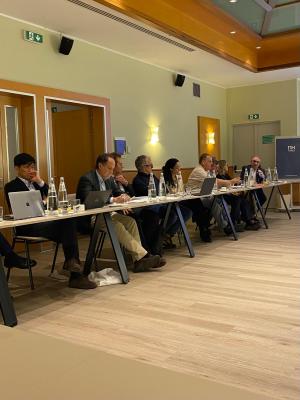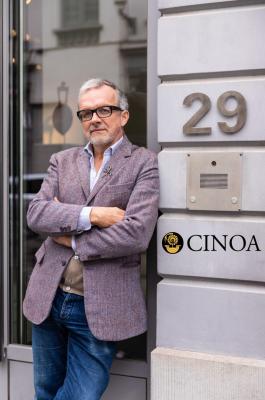Actualités
ILAB supports CINOA's international advocacy efforts for the arts and antiques trade

ILAB was pleased to attend the annual meeting of CINOA, taking place this year in Milan, an important gathering of the international art and antiques trade. CINOA plays a key role in advocating for our cultural sector at global institutions such as UNESCO, UNIDROIT, Interpol or government institutions. Many of the discussions and challenges raised are directly relevant to the rare book trade and ILAB is committed to ensuring our voice is part of this wider conversation.
Our thanks go to Gabriele Maspero, President of the Italian antiquarian booksellers association, ALAI, for representing the rare book trade so ably at this year's meeting.
Key discussions at the meeting included the implementation of the EU’s anti-money laundering regulations, upcoming changes to VAT rules, and the impact of the EU Import Regulation on non-EU cultural goods.
Delegates also addressed ongoing difficulties related to UNESCO and CITES policies, as well as unjustified national measures within EU Member States that continue to hinder the internal trade of cultural goods.
Other major topics included the lack of harmonization in national treasure laws, the need to update the outdated 1993 EU export threshold, and the growing concern over orphan cultural goods, for which participants called for coordinated solutions.
Finally, the meeting also examined the implications of U.S. tariffs and the potential for retaliatory measures by the EU and the UK.
Congratulations to Patrick Mestdagh, newly elected CINOA President and heartfelt thanks to outgoing president Clinton Howell for his many years of service.
ILAB herewith shares CINOA's call for unity across the cultural sector, issued 19 June 2025:
Under New Leadership, CINOA Mobilizes 50+ Groups to Defend Art Trade Preserving the freedom to collect, trade, and exhibit cultural heritage responsibly
As sweeping cultural property laws increasingly threaten the global art and antiques trade, CINOA, the International Confederation of Art and Antique Dealer Associations, issues a rallying call for unity across the cultural sector. Museums, collectors, artists, scholars, auction houses, and dealers must stand together to protect the freedom to collect, exhibit, and responsibly trade cultural objects.
CINOA emphasizes that the right to own, share, and exchange cultural objects must not be undermined by one-size-fits-all regulations. The organization invites all stakeholders, from independent dealers to institutional leaders, to join its growing coalition and ensure that legislation supports cultural exchange instead of stifling it.
CINOA: A Global Voice for Cultural Heritage
At its 2025 Annual General Meeting (AGM) and CINOA Advocacy Network (CAN) Roundtable held in Milan (June 4–6), CINOA brought together over 20 organizations from 11 countries. Participants included dealer associations, auction houses, trade fairs, legal experts, and scholars—underscoring CINOA’s role as the only global coalition representing the full spectrum of the art and antiques market.
Representing over 5,000 dealers worldwide, CINOA spans a vast range of specialties from ancient artifacts to contemporary art, including antiquities, tribal art, fine and decorative arts, numismatics, rare books, manuscripts, jewelry, design, and more.
This diversity uniquely equips the federation to speak on the real-world impact of cultural legislation across all segments of the market.
New Leadership, Renewed Commitment
At the AGM, Patrick Mestdagh, a Belgian non-European arts specialist and tireless advocate for the trade, was unanimously elected President of CINOA. He succeeds Clinton Howell, whose dedicated leadership and many contributions to the organisation were warmly and gratefully acknowledged by the AGM.
“CINOA’s strength lies in our shared commitment to cultural stewardship,” said
Mestdagh. “Now is the time to unite, dealers, curators, scholars, collectors, to defend the art trade as a guardian of global heritage.”
“The international art and antiques trade is more than commerce, it’s a cultural bridge
connecting generations and civilizations,” said Erika Bochereau, Secretary General of CINOA since 2005. “We must ensure that the art and antiques trade remains a vital, respected part of preserving and sharing our shared cultural heritage.”




